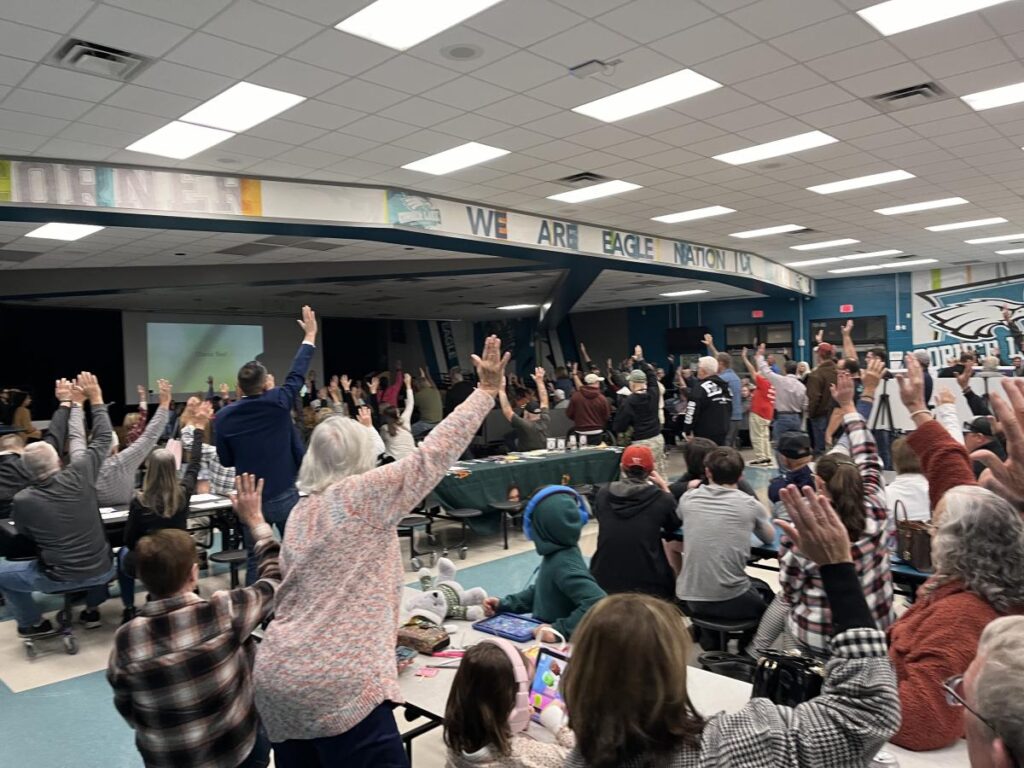In the lead-up to November’s elections in Orange County, a significant battle over land development is unfolding, particularly regarding the proposed Sustanee project, which seeks to build 1,800 homes on ranchland east of the Econ River. This initiative met resistance from Orange County Commissioners Nicole Wilson, Mayra Uribe, and Emily Bonilla earlier this year, resulting in a decisive rejection of the proposal. The developers behind Sustanee, including CHGC Land Services, are now mobilizing financial resources to unseat the opposing commissioners and gain a more favorable commission composition. They are particularly targeting Wilson and Uribe, who are up for reelection and are positioned against the growth mindset favored by many developers in the area. Their strategy includes backing challengers such as Austin Arthur to ensure a shift towards growth-friendly policies.
All six candidates vying for three commission seats this autumn reflect a growing sentiment toward a more measured approach to development, emphasizing the need for slowed growth. However, builders like Lake Pickett North are engaging in strategic political contributions designed to secure allies on the commission. For instance, CHGC’s $40,000 donation to Arthur’s political committee underscores an effort to tilt the balance in favor of candidates sympathetic to their development ambitions. Wilson, defending her opposition to Sustanee, highlights her commitment to maintaining quality of life for residents and her support for proposed charter amendments designed to limit urban sprawl. Arthur, despite his campaign’s slogan of “Slow the Growth,” accepts funding from developers, which complicates the narrative of growth opposition in this election.
In this turbulent political climate, the influence of campaign contributions from developer interests raises questions about the integrity of local governance. Sustanee’s developers escalated their efforts after their project was rejected, resorting to legal maneuvers aimed primarily at overturning the commission’s decision and eliminating the proposed charter amendments that would restrict future annexations to urban areas. Their intent to shift the commission’s makeup reflects a calculated strategy to keep development options open, seeking to align candidates with their pro-development stance and, ultimately, to secure approval for their projects.
Within this contentious landscape, candidates have differing perspectives on the role of campaign contributions from development interests. Linda Stewart, a former commissioner and current challenger to Uribe, expressed surprise at receiving financial backing from CHGC Land Services but remained cautious, emphasizing that no prior engagement with the developers had occurred. This stance echoes a critical underlying theme in the election – the need for transparency and an informed approach to governance that prioritizes the community’s interests over developer agendas. In this regard, candidates like Stewart stress the importance of weighing the facts before making any commitments regarding future development proposals.
Meanwhile, Kelly Semrad, a candidate opposing Steve Leary, has a history of activism against developments like Sustanee and emphasizes her grassroots experience with the Save Orange County group. Leary, a former Winter Park mayor, acknowledges the financial support from developers but cautions that such backing does not guarantee any automatic vote in favor of their projects. Both Leary and Semrad illustrate a nuanced understanding of the political landscape, focusing on informed decision-making rather than yielding to pressure from financial contributors. Their narratives underscore a commitment to balancing development needs with community welfare in a rapidly changing environment.
As the election approaches, the overarching concern remains the potential for unchecked development spurred by strategic political maneuvering. The ongoing debate over land use, growth management, and rural preservation resonates deeply within the Orange County community. Voters are presented not only with candidates advocating for a range of development philosophies but also with charter amendments aimed at establishing protective boundaries and ensuring responsible growth. The outcome of the elections will significantly influence the trajectory of development policy in the region and determine the future of projects like Sustanee, highlighting the critical interplay between local governance and community advocacy.

